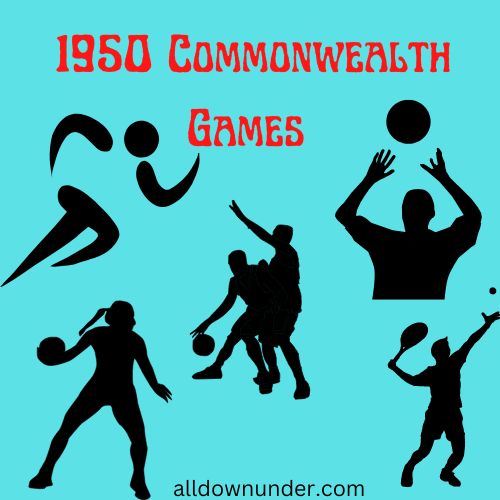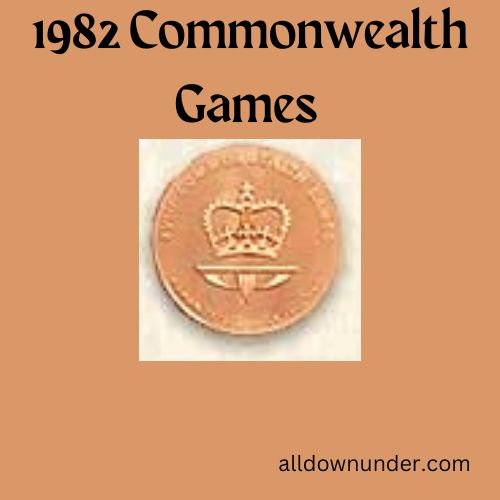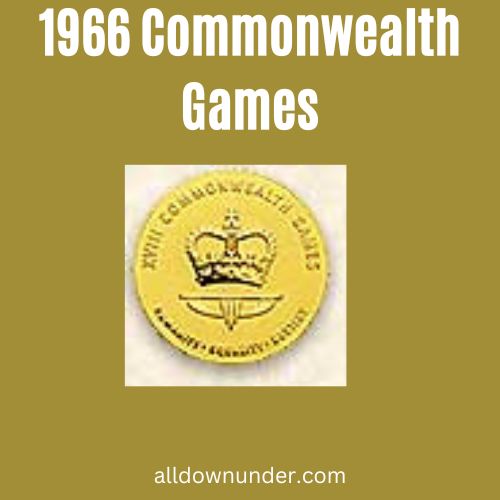| Opening Ceremony … 4 Feb 1950 | Host City … Auckland, New Zealand | Closing Ceremony … 11 Feb 1950 |
| Participants … 590 athletes, 12 Commonwealth Nations |
| 1950 Games 1950 Medals … | Gold | Silver | Bronze | Games Main Page |
The 1950 British Empire Games was the second edition of what is now known as the Commonwealth Games.
BECAUSE OF WORLD WAR II, the 1942 and 1946 Games were cancelled. As a result there was a 12 year gap between the 1950 Games and the previous one in 1938.
The 1950 Games was remarkable because of the overwhelming support of the New Zealanders who were keen to see every event. The attendance at the 1950 Games was 246,694, far higher than the next three Games: 1954 Canada (159,636), 1958 Wales (178,621) and 1962 Australia (224,694).

Games was 246,694, far higher than the next three Games: 1954 Canada (159,636), 1958 Wales (178,621) and 1962 Australia (224,694).
Australian Marjorie Jackson was voted one of the 200 most famous Australians. It isn’t surprising considering that she won 4 gold medals in the women’s 100 and 220 as well as both women’s team relays. Add to that the 3 gold she won four years later at the Vancouver 1954 Games. And between those two Games, she won 2 Olympic golds and set 13 world records. She did all this before the age of 21. Unfortunately for Australia, she retired from competition after the 1954 Games, devoting her time to her marriage to Aussie cyclist Peter Nelson. As a woman in those days, societal pressures meant she had to choose between her athletic career and her marriage.
Top 12 Countries By Total Medals
The 1950 Games was notable because all twelve countries won at least one medal.
Host country listed in bold.
| Country | Total | ||||
| 1 | Australia | 34 | 27 | 19 | 80 |
| 2 | New Zealand | 10 | 22 | 20 | 52 |
| 3 | England | 19 | 16 | 13 | 48 |
| 4 | Canada | 8 | 9 | 14 | 31 |
| 5 | South Africa | 8 | 4 | 8 | 20 |
| 6 | Scotland | 5 | 3 | 2 | 10 |
| Country | Total | ||||
| 7 | Fiji | 1 | 2 | 2 | 5 |
| 8 | Malaya | 2 | 1 | 1 | 4 |
| 9 | Ceylon | 1 | 2 | 1 | 4 |
| 10 | Wales | 0 | 1 | 0 | 1 |
| 11 | Rhodesia | 0 | 1 | 0 | 1 |
| 12 | Nigeria | 0 | 1 | 0 | 1 |
There were some unusual competitions. Tom Lavery (South Africa) almost didn’t earn a medal because of, in today’s parlance, a wardrobe malfunction. It seems Mr. Lavery popped the button on his shorts when he came out of a crouch at the starting gun. Although he had won a gold medal at the previous Games, running the 440 yard hurdles race took on a new difficulty for him. As he ran he managed to keep the shorts in place, but every time he hurdled, his shorts would slip down. He had to yank them back in place after he cleared each hurdle. It’s a toss up whether he was happier that he managed to win a bronze medal or that he kept his pants up. In any case, it was certainly a memorable race.
One definition in The Australian Oxford Dictionary for the word ‘marathon’ is ‘long test of endurance’. That was certainly the case for forty-three year old Jack Holden (England). During his marathon race his running shoes became water-logged when the heavy downpour resulted in water on the road six inches deep in some stretches. Because his shoes were now too heavy to run in, he ran barefoot the last eight miles. He was still leading the race when around the last three miles till the finish, a dog began to nip at his ankles and almost tripped him. Games officials eventually got the dog to the side of the road. Although his feet were bleeding heavily, Holden managed to finish and earn himself a gold medal.
Participating Teams
Countries returning to the games were: Australia, Canada, Ceylon, England, Fiji, New Zealand, Rhodesia, Scotland, South Africa, Wales. Competing for the first time were: Malaya and Nigeria.



